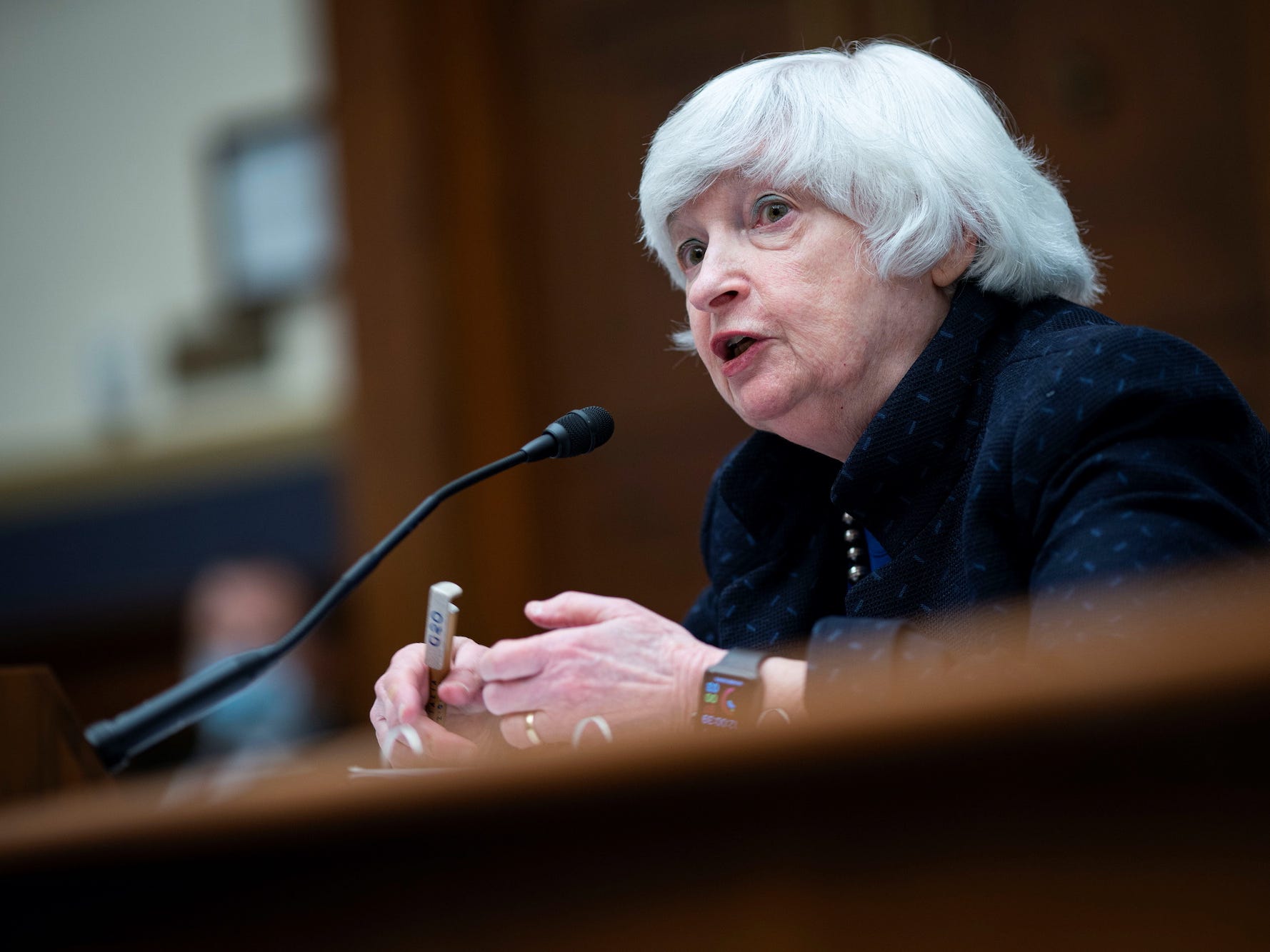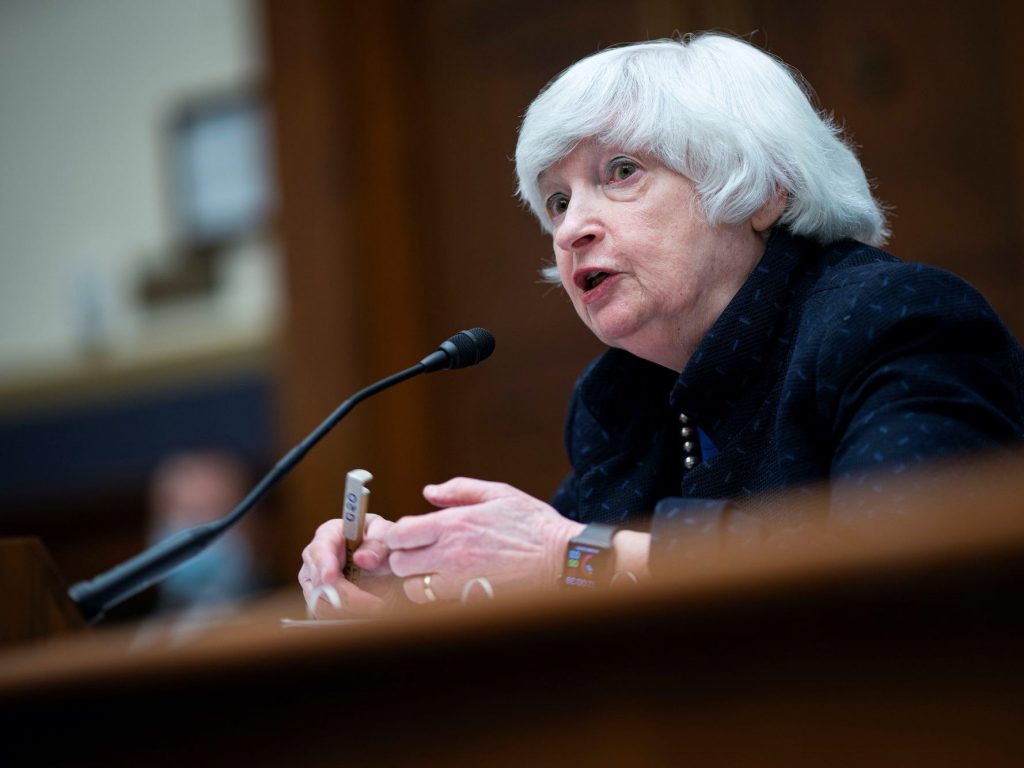
Al Drago/Pool/Reuters
- The US government is monitoring the real-estate debt crisis in China closely, said Treasury Secretary Janet Yellen.
- A slowdown in China would have "global consequences," Yellen told CBS' "Face the Nation."
- China real-estate giant Evergrande is grappling with looming defaults, prompting concerns over contagion.
The US government is closely monitoring developments in China, where real-estate giant Evergrande is facing a debt crisis that could ripple through the global economy, said Treasury Secretary Janet Yellen.
"Real estate is an important sector of the Chinese economy. It accounts for about 30% of demand," said Yellen in a taped interview with CBS' "Face the Nation" that aired on Sunday.
"And a slowdown in China, of course, would have global consequences. China's economy is large, and if China's economy were to slow down more than expected, it certainly could have consequences for many countries that are linked to China through trade," she added to the network.
Real-estate firms in China are grappling with high debt levels and looming defaults as the troubles from real estate giant Evergrande spread.
China Evergrande is now the world's most indebted company with a $300 billion debt pile. It has managed to pay off several overdue coupons just in time, averting a default that could send the rest of the sector – and possibly the rest of the world – into a massive crisis.
Yellen told CBD Chinese authorities are trying to manage the situation: "They're certainly trying to do that, and it's something we're watching closely."
Yellen's comments come after the US Federal Reserve said in its Financial Stability report, released last Monday, that stresses in the Chinese real-estate sector from Evergrande's debt crisis could spill over to the US.
"Given the size of China's economy and financial system as well as its extensive trade linkages with the rest of the world, financial stresses in China could strain global financial markets through a deterioration of risk sentiment, pose risks to global economic growth, and affect the United States," the central bank said.
